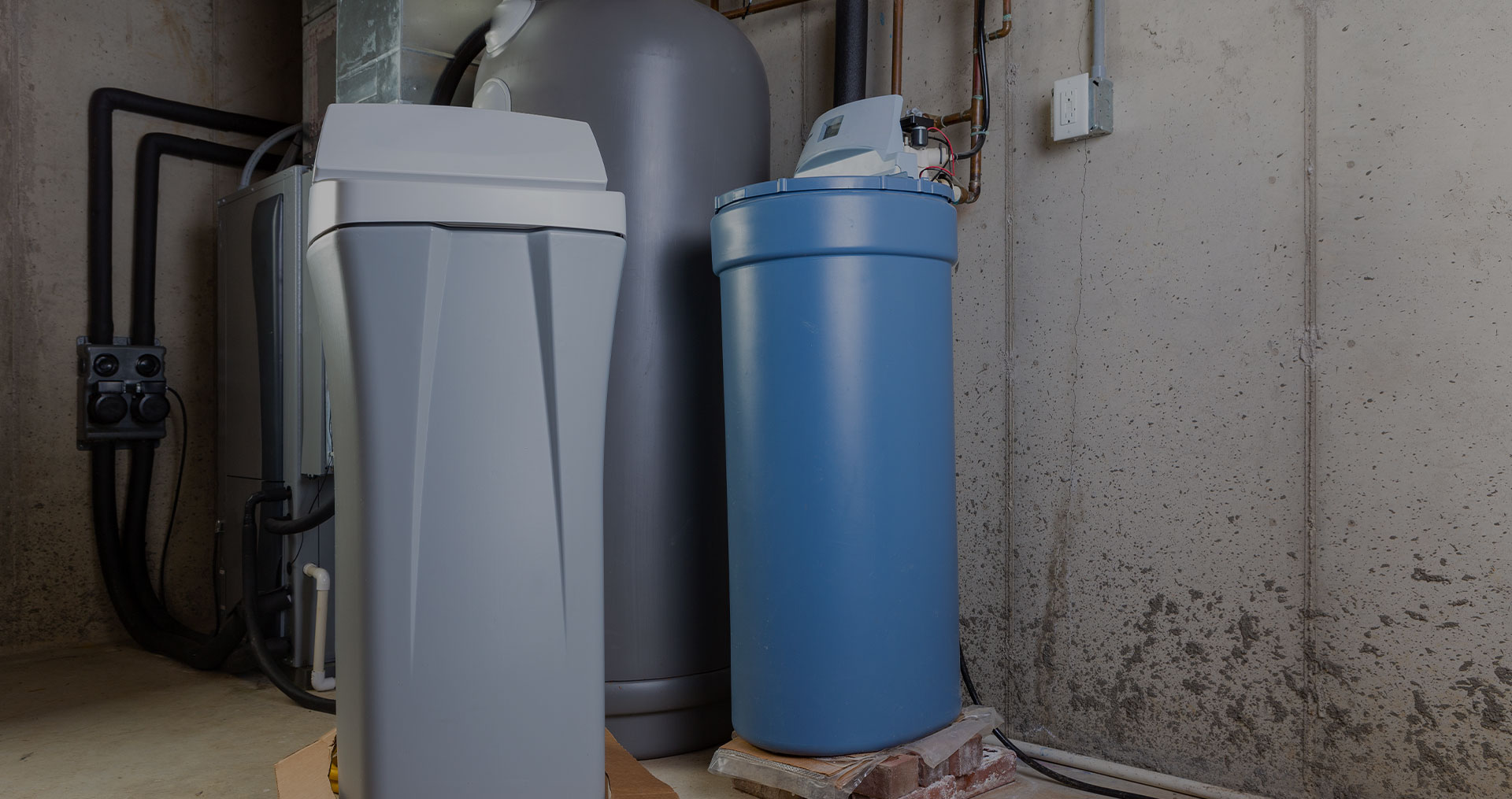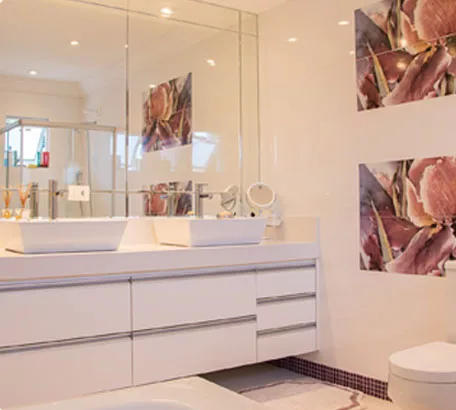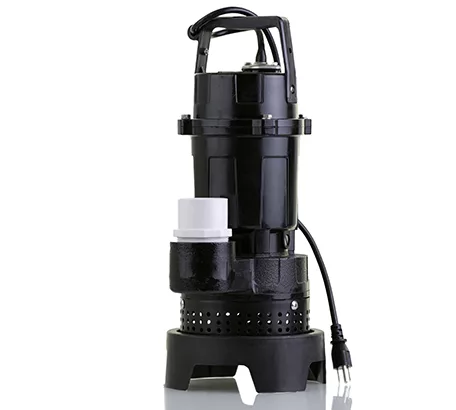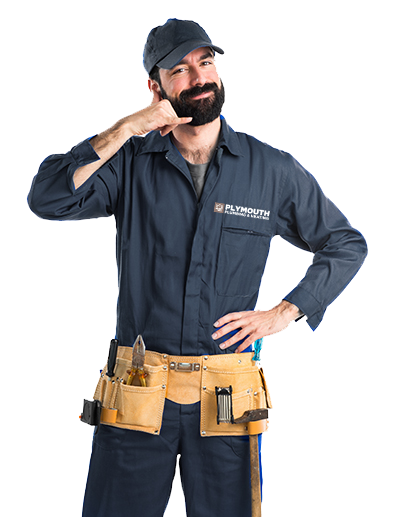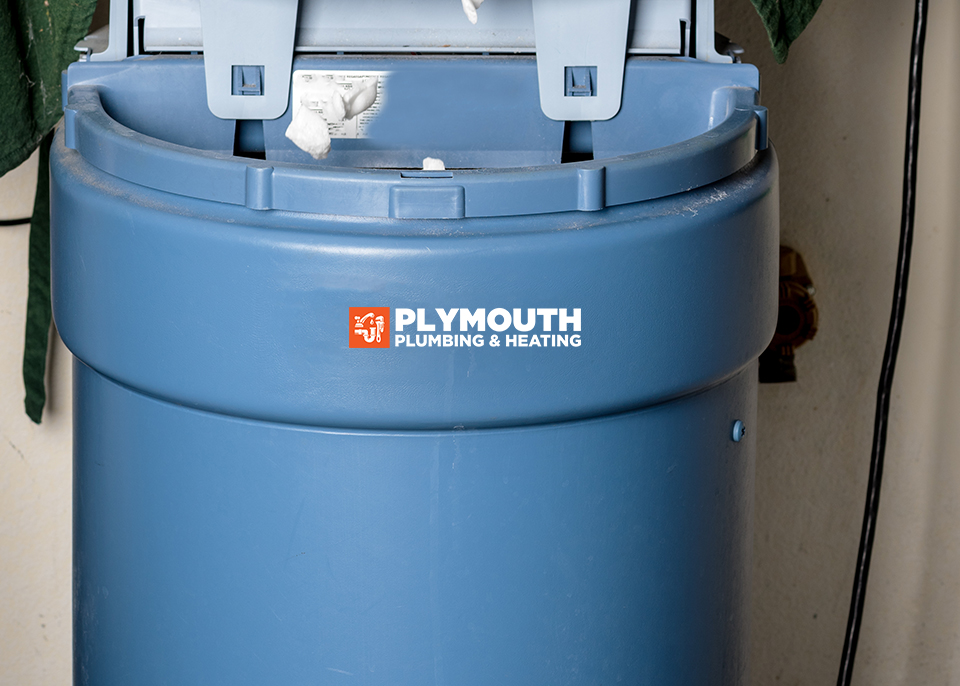
PROBLEMS WITH HARD WATER?
Fix Them With Our Water Softener Replacement Services
Perhaps you have heard the term “hard water,” but never really understood it. If you have ever experienced slimy-feeling hands after washing them, or been disgusted with the whitish film on your drinking glasses when taking them out of the dishwasher, then you know some of the consequences of hard water. The various dissolved minerals found in Wisconsin water can cause issues that may necessitate water softener replacement:
- Buildup that clogs pipes, lines, and appliances
- Sediment accumulation in water heaters
- Filmy coating on bathroom and kitchen surfaces, cookware, glassware, and other utensils
- Undue wear and discoloration on your laundry
- Adverse effects on hair and skin
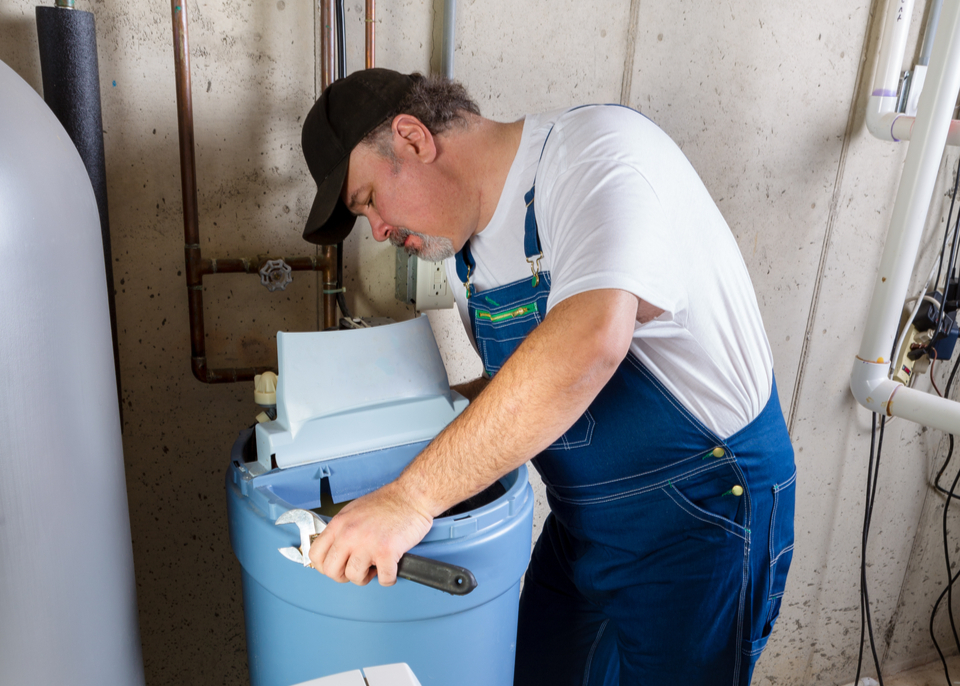
Water Softener Repair & Installation | Plymouth & Sheboygan
Your Local Water Quality Specialists Serving Plymouth & Sheboygan.
A quality water softener installation from Plymouth Plumbing & Heating can improve your health, save you energy and money, and protect your home’s important components from undue wear and deterioration. Call us at 920-893-3601 to speak with a team member about water softeners near me and solutions for mineral buildups and filmy coatings on my fixtures and belongings.
When seeking “water softeners near me,” you need to understand their basic operation and how they can help you. Basic chemistry uses negatively charged resin beads. Hard water contains high amounts of calcium and magnesium, which are positively charged molecules. Water conditioning near me occurs as the calcium and magnesium are attracted to the resin beads in the water softener. The result is clean, clear, soft water that feels great and keeps your pipes, appliances, and utensils residue-free.

If you are searching for these terms you have
come to the right place.
- Water Softener
- Hard Water
- Whole House Water Filter
- Best Water Softener
- Water Softener Installation
- Water Softener Replacement
- Whole House Water Softener
- Soft Water
- Hellenbrand Water Softener
- How To Soften Water
- Water Softener Repair
- Broken Water Softener
- Water Softener Purchase
Frequently Asked Questions
When you have questions, ask a plumber! Browse some commonly asked questions here or send us your plumbing-related question. We will reply with an answer promptly.
A water softener is a type filtration system for your entire home that removes harmful minerals from your water supply. It is called a “water softener” because it eliminates the cause of “hard water” — minerals like calcium, iron, and magnesium. These minerals form a scale over time that builds up in pipes, water heaters, and appliances. It reduces your water pressure and dramatically decreases the lifespan of your dishwasher, coffee machine, and other water-using appliances.
Hot water causes these minerals to harden and solidify even more, which is bad news for your hot water heater. The scale attaches to the heating elements. As the deposits crack and expand, it makes popping noises, like popping corn. If you hear these sounds from your hot water heater, hard water has already greatly decreased its efficiency. Various water softener types all follow the same basic process for turning hard water into soft water. The process is called ion exchange, in which the “hard” negative ions of calcium and magnesium are collected by passing the water through polystyrene beads that are positively charged with sodium.
A plumber from Plymouth Plumbing & Heating can perform an installation in a matter of hours. It will need to be installed as close as possible to where your main water line enters the home. This ensures that all your appliances, piping, and especially your water heater is protected from hard water minerals. It should be installed in a dry, level location close to an electrical outlet. The plumber will also need to install a drain line for the water softener.
Regardless of the water softener types available, the main components of a water softener system are the mineral tank, the control valve, and the brine tank.
The Mineral Tank
This component is the main part of the water softener system, where the actual “water softening” process takes place. It contains resin beads that separate calcium and magnesium ions from your water.
The Control Valve
This valve measures the amount of water passing through the mineral tank and into your home. At a predetermined point, before the resin beads in the mineral tank become depleted, the valve initiates a regeneration cycle to “recharge” the beads.
The Brine Tank
This tank holds a concentrated solution (usually salt or potassium) that restores the resin beads’ positive charge. It is this charge that attracts the calcium and magnesium ions, causing them to “stick” to the beads and leave your water soft and pure.
Your plumber from Plymouth Plumbing & Heating will place and prepare all these components and any necessary water or drain lines during your water softener installation. He will also demonstrate how the system works, along with the water softener maintenance that is required to maintain the system in optimal operating condition.
There are various water softener types available, and each system will include different features and options. We carry Hellenbrand water softeners, which we believe are the best options available. Your installation cost can range anywhere from $500-$4000, depending on the type, quality, and installation needs.
Salt or potassium-based water softeners can also have recurring costs for maintaining the system. One of our team members can explain these factors, as you calculate the total costs for installing and maintaining a particular system.
Call Plymouth Plumbing & Heating today or send us a message online to ask about water softener replacement, repair, and installation and the best water softener types available for your home!
Ever heard of the term “hard water”? Most people have but don’t quite know what it means. Hard water is when there is a high concentration of minerals such as calcium, magnesium, iron, bicarbonates, and sulfates in your water. These contaminants shorten the lifespan of your plumbing by clogging your pipes and complicating the solubility of your detergent and soap. This is also the culprit behind the buildup on your glass and silverware.
A water softener removes these minerals, increasing your plumbing durability. Soft water even helps create softer skin and shinier hair. Plymouth Plumbing and Heating carries Hellenbrand water softeners, which we believe to be the best option on the market. Call a member of our team today to get yours!Longer Appliance Lifespan
Calcium and magnesium contaminants can easily ruin expensive faucets and pipes. Water softeners are an excellent investment to avoid this buildup and increase your water-based appliance’s life span. In addition to your faucets and laundry machines, it improves your solar heating system, air conditioning units, and other water-based applications.
Decreases Dry Skin and Dull Hair
The large composite of magnesium and calcium in hard water makes it difficult to lather the soap. This typically leaves you with a film of soap on your skin every time you shower or wash your hands. Water softener makes the water easier to lather, thus resulting in softer skin and shinier hair.
Cleaner Clothes
Hard water may also leave mineral stains on your laundry due to the soap being difficult to lather. By stripping away those contaminants, water softeners improve the quality and cleanliness of your garments.
Water softeners operate through a process called ion exchange. The softener holds the contaminants in a conditioning tank, eliminating calcium and magnesium. These minerals are exchanged for other ions such as sodium and potassium, creating soft water. This process is also called water treatment — any process that improves the quality of water for a specific use.
A water softener that uses salt (sodium chloride) will increase your salt intake if you drink the water. If a family member in your home has high blood pressure, make sure to consult with a doctor before drinking softened water. As an alternative, you can use water softeners that exchange potassium chloride instead of salt.
Or you can invest in salt-free softeners that use a process called Template Assisted Crystallization (TAC). This process converts the hard minerals into a hard crystal that won’t stick to any surface in your home. As a note, the calcium, iron, and magnesium minerals removed from hard water are not harmful to the body — only to appliances. Removal of these minerals removes them from the diet, which also may be a health disadvantage.
A good water softener can last from 10-20 years. Give Plymouth Plumbing and Heating a call today to find the best water softener for your home. We offer both water softener replacement and installation.
SERVICE AREAS
WE’VE GOT YOU COVERED

CITIES
- Adell
- Belgium
- Cascade
- Cedar Grove
- Cedarburg
- Chilton
- Cleveland
- Elkhart Lake
- Fon du Lac
- Fredonia
- Glenbeulah
- Grafton
- Greenbush
- Hingham
- Howards Grove
- Kewaskum
- Kiel
- Kohler
- Mequon
- New Holstein
- Oostburg
- Plymouth
- Port Washington
- Random Lake
- Saukville
- Sheboygan
- Sheboygan Falls
- St Anna
- St. Cloud
- Waldo
